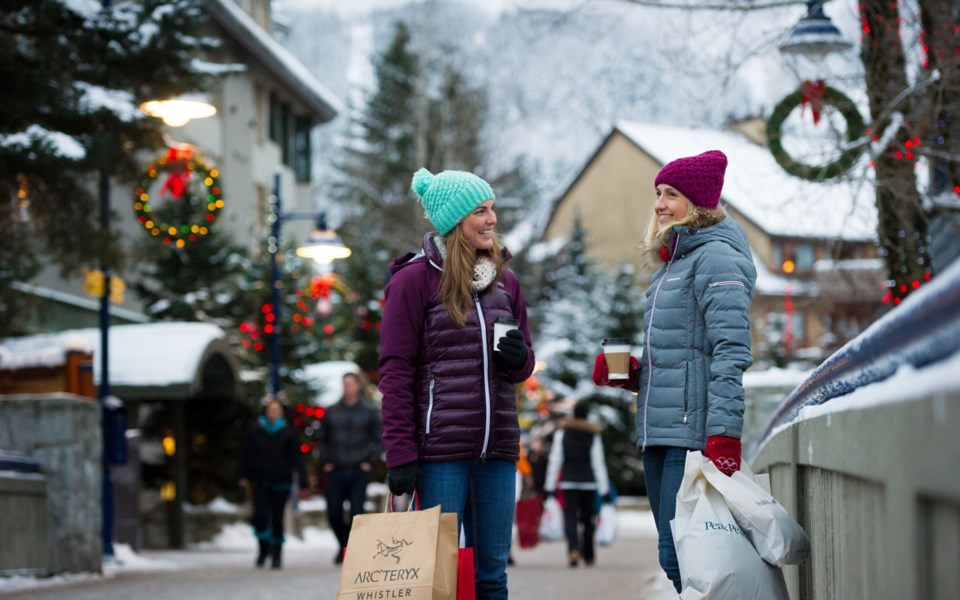It's always fun and actually quite amazing to read through Pique's annual "Best of Whistler" feature.
It speaks volumes about why we are a No. 1-ranked resort in the world. We have restaurants that we love, which are also some of the best in Canada — think Bearfoot Bistro, Araxi, Quattro, Red Door, Rimrock and more.
We have outdoor adventure in spades, whether it's a simple hike in the forests and mountains or an ATV or snowmobile tour.
And, of course, we have the best downhill mountain biking in the world, and the best skiing and riding, too.
We have retailers that have been in business for decades and some that are new — all of which understand that we are in this together.
But all these things are just that, things.
What makes the experiences stand out are the interactions we have with the people of our community, and I would argue it is the same for the visitor. The one-on-one help and service the guest gets from those around them in any number of businesses is a huge part of what makes a vacation memorable — and one worth repeating.
As we look back at 2017, this underlying reality has coloured many of the decisions made by local government.
We see it in the push for more employee-restricted housing and we see it even in the election of long-time local Cathy Jewett to council — not only is this a person with a long view of the resort and its growth, Jewett has volunteered in organizations that see firsthand the social fall out when people begin the slow slide into becoming unable to keep their heads above water.
New Whistler Housing Authority (WHA) units have just come online in Cheakamus — and no surprise, they were full right away. And that's even with the strict rules in place for rental.
Did you know that to rent a two-bedroom place you had to have three people — so a single mom and her teenage son couldn't apply unless one of them doubled up?
And since the building was a partnership between BC Housing and the WHA, the gross income for the two-bedroom couldn't exceed $100,000. So if you had a couple and a friend living there, you couldn't earn over $100,000 collectively (and you need pay stubs to prove that) but the rent is $1,775 a month.
Last week, we learned of a new private developer's idea to build housing for employees. At $3 a square foot, it's likely that it's out of the financial reach of most frontline workers. That would make the 23 one-bedroom units proposed for the development $1,971 a month to rent, (as compared to $1,036 in Squamish and $1,223 in Vancouver), the 33 one-bedroom units with a den would come to $2,325 a month in rent (that means you need to earn $93,000 a year to live here alone), while the 18 two-bedroom units proposed would cost $2,487.
Of course, we need diversity and variety if we are to address housing at all price points but the greatest need for housing right now is for "affordable" housing.
This new development clearly doesn't address that need.
Obviously, building a complex like this, where the developer has to pay for the land, means that the prices are bound to be higher.
This means that the affordable option is always going to come through the Resort Municipality of Whistler (RMOW) and the WHA by building employee-restricted housing where the land is free — namely at Cheakamus.
Then there is the bed unit allotment for the Nordic site.
(A bed unit is a measure of development intended to reflect servicing and facility requirements for one person. The bed unit measurement was introduced in Whistler's first OCP adopted in 1976 as a means to manage the future growth of Whistler to be consistent with infrastructure capacity, highway capacity and ski lift capacity.)
As it stands, the Nordic site has six and that would rise to 222 bed units under the current plan if approved. Though likely a bit out of date now, it is generally understood that a bed unit is worth about $90,000 — doing the math, that means the developer of the Nordic site is a getting a $19.4-million gift.
(And the RMOW can consider this while continuing its plan to "loan" with interest $1 million to Whistler Community Services to help with budget increases to the cost of its new build for the Re-Use-It Centre at Nesters).
According to the RMOW, Whistler will reach its bed cap at 61,513 — currently 53,038 are developed.
No one said dealing with affordable housing was going to be easy.
But as we celebrate the best of what Whistler has to offer and get ready to welcome a new year let's not forget that the very fabric of the resort comes from the people who make up this community, and having safe, warm, affordable housing is a key part of keeping that fabric strong.




